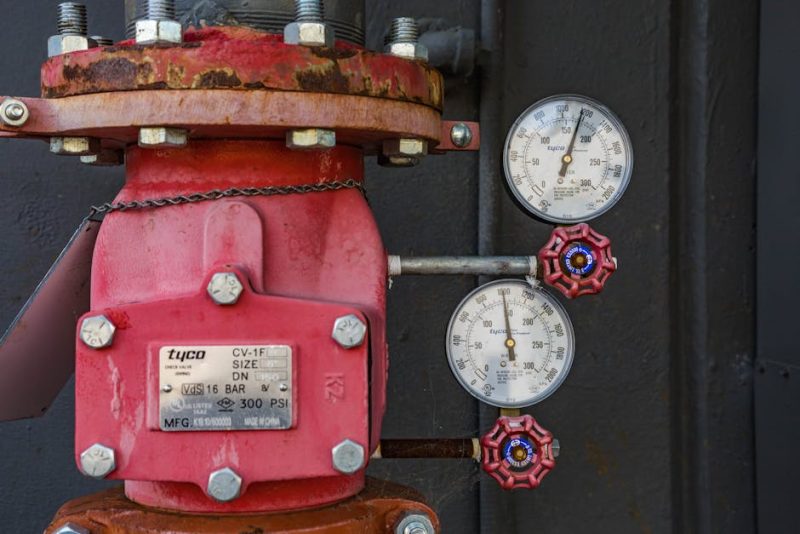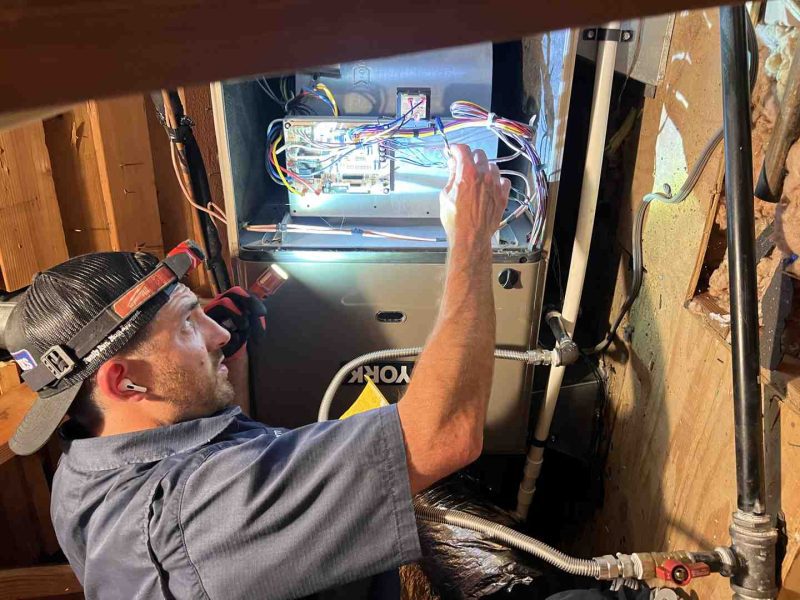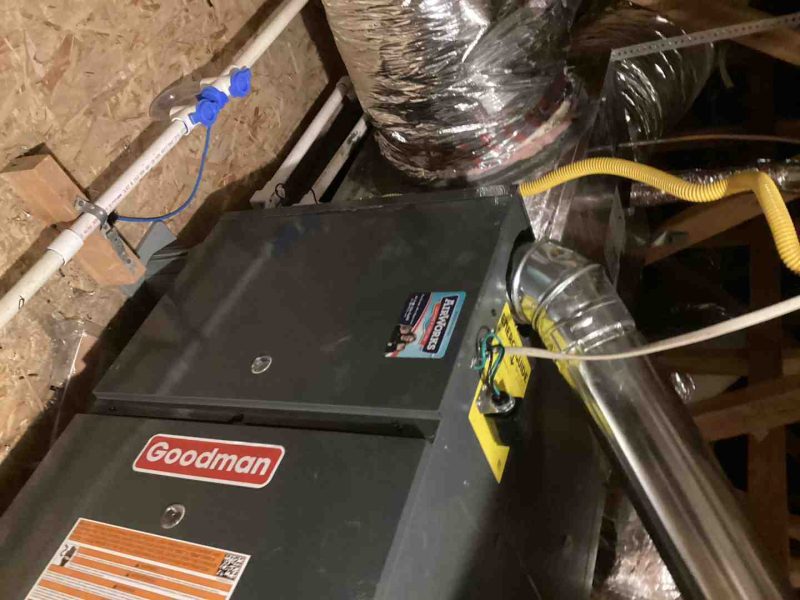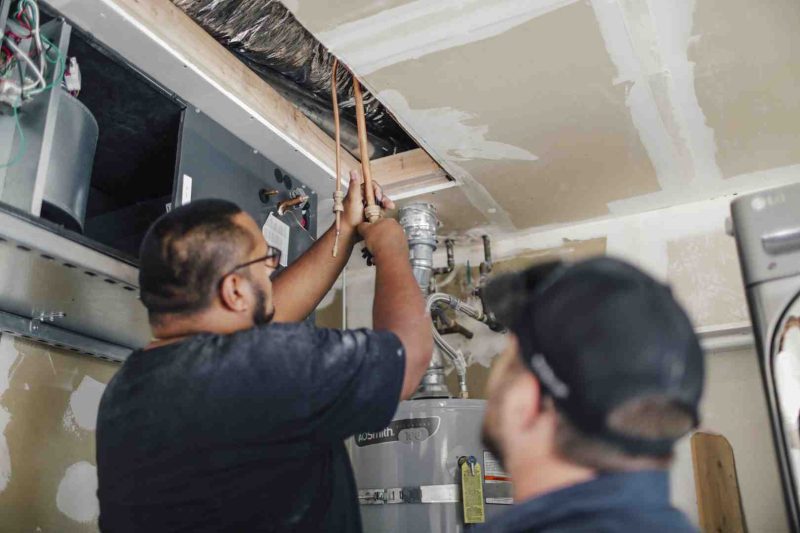Your Local Boiler Hero: How to Find Gas Boiler Repair Near Me

Telltale Signs Your Gas Boiler Needs Attention
Recognizing the early warning signs of a gas boiler in distress can save you from costly repairs, inconvenient breakdowns, and potential safety hazards. We often hear from homeowners who wish they had acted sooner. Paying attention to these indicators is the first step in ensuring your heating system remains reliable.
Strange Noises
Your boiler should operate relatively quietly. If you start hearing unusual sounds, it’s a clear signal that something is amiss.
- Gurgling: This can indicate air in the system or low water pressure.
- Whistling (Kettling): Often caused by limescale buildup on the heat exchanger, restricting water flow and causing it to overheat and boil. This is a common issue that can significantly reduce efficiency and potentially damage components.
- Banging: Loud banging noises, sometimes described as a “clunking” or “hammering” sound, could point to issues like a faulty pump, trapped air, or even a build-up of sludge in the system.
Leaks and Drips
Any visible water around your boiler is a cause for concern. Leaks, no matter how small, can lead to corrosion, damage to electrical components, and even structural issues if left unaddressed. Common sources of leaks include:
- Pipework connections: Loose fittings or corroded pipes.
- Pressure relief valve: If the system pressure is too high, this valve will release water to prevent damage.
- Pump seals: Worn-out seals can allow water to escape.
Low Boiler Pressure
A consistent drop in boiler pressure is a frequent problem. Most boilers have a pressure gauge, and if it consistently falls into the red zone, it indicates a leak in the system or that the system needs topping up.

While topping up the pressure can be a temporary fix, recurring low pressure necessitates a professional inspection to identify and seal any leaks.
Pilot Light Issues
For older boilers with a pilot light, if it frequently goes out or changes color from a strong blue to a weak yellow or orange, it’s a sign of trouble. A yellow or orange flame indicates incomplete combustion, which can produce dangerous carbon monoxide.
Inconsistent Heat
If your radiators aren’t heating up evenly, or if some rooms remain cold despite the heating being on, your boiler might be struggling. This could be due to:
- Sludge or debris: Accumulation in the system can block water flow to certain radiators.
- Thermostat issues: A faulty thermostat might not be accurately reading the room temperature or communicating effectively with the boiler.
- Diverter valve problems: In combi boilers, a malfunctioning diverter valve can prevent hot water from reaching either the taps or the radiators.
Understanding Common Boiler Error Codes
Modern gas boilers are equipped with diagnostic systems that display error codes when a fault is detected. These codes are invaluable for technicians but can also provide homeowners with an initial understanding of the problem.
- Consult your manufacturer manual: Each code corresponds to a specific issue, from low pressure to sensor failures.
- Resetting the boiler: Sometimes, a simple reset can clear a temporary glitch. However, if the error persists, it indicates a more serious underlying problem.
- When to call a professional: Never ignore persistent error codes. They are your boiler’s way of telling you it needs expert attention.
Differentiating Minor Issues from Major Problems
While some boiler issues require immediate professional intervention, others might have simple solutions you can try.
- Thermostat check: Ensure your thermostat is set correctly and the batteries aren’t dead.
- Pressure top-up: If your boiler pressure is low, you can often re-pressurize it yourself by following your boiler’s manual instructions.
- Obvious leaks: Any visible leak, even if small, should prompt a call to a specialist.
- Persistent problems: If a problem recurs after you’ve tried a simple fix, or if you’re unsure about the cause, it’s always best to consult a qualified professional. Ignoring persistent issues can lead to more extensive damage and higher repair costs.
How to Find a Qualified and Reliable Gas Boiler Specialist
When your gas boiler needs repair, finding a competent and trustworthy specialist is paramount. The right professional ensures not only effective repair but also your home’s safety.
Local Recommendations and Online Reviews
Start your search by asking friends, family, and neighbors for recommendations. Personal referrals often lead to reliable service providers. Complement this with online research:
- Online reviews: Websites like Google, Yelp, and specialized trade platforms provide valuable insights into a company’s reputation and customer satisfaction. Look for patterns in feedback regarding professionalism, punctuality, and the quality of work. Platforms like Angi can help you find top boiler repair pros in your area, and sites like Rated People boast millions of satisfied homeowners who have found quality tradespeople.
- Vetting professionals: Once you have a few candidates, check their websites for information about their experience, services, and certifications.
Licenses and Certifications
This is perhaps the most critical step in selecting a gas boiler repair specialist.
- Gas Safe Register: In the UK, for instance, it is a legal requirement for anyone working on gas appliances to be on the Gas Safe Register. This ensures they are qualified and competent to work safely and legally with gas. Always ask to see their Gas Safe ID card. For more information on what it means to be Gas Safe registered, you can visit the official Gas Safe Register website.
- Unvented Qualification: Some technicians may also hold an “Unvented” qualification, which certifies their ability to work on unvented hot water systems, ensuring they can perform their work to the highest industry safety standards.
- Manufacturer-specific training: Technicians with training from specific boiler manufacturers (e.g., Worcester Bosch, Vaillant) often have a deeper understanding of those particular systems.
Local Service Benefits
Choosing a local gas boiler repair service offers several distinct advantages:
- Quick response times: Local technicians can typically respond much faster, especially in emergencies. This is crucial when you’re without heat or hot water. For example, some services in areas like Glasgow aim for same-day or next-day repairs, and even emergency responses within an hour for specific zones.
- Familiarity with local housing stock: Local specialists are often familiar with the types of heating systems common in your area, which can aid in quicker diagnosis and repair.
- Supporting local business: Choosing local services helps your community thrive.
- Community reputation: Local businesses often rely heavily on their reputation within the community, incentivizing them to provide excellent service.

What to Expect from a Professional Repair Service
When a qualified technician arrives, you should expect a structured approach to solving your boiler problem:
- Initial diagnosis: The technician will thoroughly inspect your boiler, ask about the symptoms you’ve observed, and use specialized tools to pinpoint the fault.
- Clear explanation of the problem: They should clearly explain what’s wrong, why it happened, and what steps are needed to fix it.
- Repair process: The repair will be carried out efficiently, using genuine parts where replacements are necessary.
- System testing: After the repair, the boiler will be thoroughly tested to ensure it’s functioning safely and correctly.
- Post-repair advice: The technician should offer advice on how to prevent future issues and answer any questions you might have.
The Value of Choosing a Local Technician
The benefits of opting for a local gas boiler repair service extend beyond just proximity. A local company often has a vested interest in maintaining a stellar reputation within its community. We’ve seen how positive word-of-mouth and strong local ties lead to consistent, high-quality service delivery. This often translates into faster emergency response times, as their service area is concentrated, and their technicians are readily available. Furthermore, local engineers are often intimately familiar with the common types of heating systems and installation practices prevalent in the area, allowing for quicker and more accurate diagnoses. For homeowners, this means less downtime and a more efficient repair process.
Understanding the Scope of Gas Boiler Repair
Gas boilers, whether they are part of a hydronic heating system using radiators or radiant floor heating, are complex appliances. Their efficient operation relies on a delicate balance of mechanical, electrical, and gas components. When one part fails, it can affect the entire system.
Common Boiler Malfunctions and Their Causes
Understanding the typical causes of boiler malfunctions can help you identify problems early and communicate effectively with your repair specialist.
- Kettling: As mentioned earlier, this whistling sound is usually due to limescale buildup on the heat exchanger. This mineral deposit restricts water flow, causing it to overheat and boil. Hard water areas are particularly prone to this.
- Faulty pump: The circulation pump moves hot water through your heating system. If it fails, you might experience inconsistent heating or no heating at all.
- Airlocks: Air trapped in the system can prevent water from circulating correctly, leading to cold spots in radiators.
- Frozen condensate pipe: In high-efficiency condensing boilers, the condensate pipe can freeze in cold weather, causing the boiler to shut down.
- Thermostat failure: A malfunctioning thermostat can lead to the boiler not turning on or off when it should, resulting in uncomfortable temperatures or wasted energy.
- Gas valve issues: Problems with the gas valve can prevent the boiler from igniting or maintaining a flame.
- Printed Circuit Board (PCB) faults: The PCB is the “brain” of the boiler. If it fails, the boiler may display error codes or simply stop working.
For comprehensive information on various boiler issues and professional repair solutions, you can explore resources dedicated to expert boiler repair services. We also offer detailed insights into these common problems and our approach to resolving them through our dedicated content on AirWorks gas boiler repair.

When to Call a Pro for Gas Boiler Repair
While some minor issues can be addressed by homeowners, most gas boiler repairs require the expertise of a certified professional.
- DIY limitations: Attempting complex repairs yourself can be dangerous and may void your boiler’s warranty. Gas appliances carry inherent risks that only trained individuals should handle.
- Safety risks: Gas leaks and carbon monoxide poisoning are serious concerns. If you smell gas or suspect a carbon monoxide leak (e.g., from a yellow pilot light), evacuate immediately and call emergency services and a qualified gas engineer.
- Electrical components: Boilers contain intricate electrical wiring. Tampering with these components without proper knowledge can lead to electric shock or further damage.
- Water damage potential: Incorrectly diagnosing or repairing a leak can result in significant water damage to your home.
When in doubt, always err on the side of caution and call a professional. The average cost to hire a plumber or heating engineer can vary, but the peace of mind and safety assurance that comes with expert service is invaluable.
Preventative Maintenance to Avoid Future Breakdowns
Proactive maintenance is key to extending the lifespan of your gas boiler, ensuring its efficiency, and preventing unexpected breakdowns. Just like your car, your boiler benefits greatly from regular check-ups.
Annual Professional Servicing
The most crucial preventative step is scheduling an annual professional service. A qualified engineer will:
- Inspect all components: Check for wear and tear, corrosion, and potential leaks.
- Clean the system: Remove any sludge or limescale buildup that can hinder performance and lead to issues like kettling.
- Test safety devices: Ensure all safety mechanisms are functioning correctly.
- Check gas pressure and flow: Verify that the boiler is operating at optimal levels.
- Provide a service report: Document all checks and any recommendations for future maintenance or repairs.
Regular servicing not only keeps your boiler running smoothly but can also be a requirement to maintain your manufacturer’s warranty. Companies like GSR Gas Service & Repair emphasize the importance of regular boiler servicing to keep your system running efficiently.
Simple Homeowner Checks
While professional servicing is essential, there are a few simple checks you can perform between annual visits:
- Checking boiler pressure: Regularly monitor your boiler’s pressure gauge. If it’s consistently too low, you might need to top it up or investigate a potential leak.
- Bleeding radiators: If your radiators have cold spots at the top, it indicates trapped air. Bleeding them releases this air, allowing hot water to circulate properly.

- Keeping vents clear: Ensure that the boiler’s ventilation points are clear of obstructions to allow for proper airflow and safe operation.
- Visual inspection for leaks: Periodically check around your boiler and pipework for any signs of water leaks or drips.
- Listening for unusual noises: Pay attention to any new or persistent strange sounds coming from your boiler.
- Checking the pilot light flame color: For boilers with a pilot light, ensure it’s a strong blue flame.
Creating a Simple Boiler Maintenance Checklist
To stay on top of your boiler’s health, consider creating a seasonal checklist:
- Annually (Professional): Schedule your professional boiler service. This is ideal before the colder months begin.
- Monthly (Homeowner):Check boiler pressure.
- Visually inspect for any leaks or drips around the boiler and pipes.
- Listen for any unusual noises.
- Quarterly (Homeowner):Bleed radiators if cold spots are present.
- Ensure boiler vents and flues are clear of obstructions.
- Check the pilot light (if applicable) for a strong blue flame.
The Importance of Professional Gas Boiler Repair for Safety
Beyond efficiency, the primary reason for professional boiler maintenance and repair is safety. Gas boilers burn natural gas, and improper operation can lead to dangerous situations.
- Gas safety: Professional technicians ensure that gas connections are secure and that the boiler is combusting gas safely and efficiently.
- Carbon monoxide risks: A faulty boiler can produce carbon monoxide, an odorless, colorless, and deadly gas. Regular servicing includes checks to prevent this.
- Water damage prevention: Early detection of leaks prevents costly water damage to your property.
- Ensuring system efficiency: An efficiently running boiler uses less energy, saving you money on utility bills. This is a key benefit of regular heating maintenance.
Frequently Asked Questions about Gas Boiler Repair
We understand that boiler issues can raise many questions. Here, we address some of the most common concerns homeowners have when seeking gas boiler repair near them.
What should I do in a gas boiler emergency?
A gas boiler emergency typically involves a suspected gas leak or carbon monoxide poisoning. Your immediate actions are critical for safety:
- Gas smell procedure: If you smell gas, open windows and doors to ventilate the area. Turn off your gas supply at the meter, if it’s safe to do so. Do not operate any electrical switches, light matches, or use your phone in the immediate vicinity. Evacuate everyone from the property.
- Carbon monoxide alarm actions: If your carbon monoxide alarm sounds, open windows and doors, and evacuate the property immediately. Seek fresh air and call emergency services from a safe distance.
- Contact a professional: Once safe, call a qualified gas engineer or your gas supplier’s emergency line. Never re-enter the property until it has been declared safe by a professional.
How long does a typical gas boiler repair take?
The duration of a gas boiler repair can vary significantly depending on the nature and complexity of the problem:
- Diagnosis time: A skilled technician can often diagnose common faults within the first hour of a visit. For example, some service providers state that their call-out charge includes the first 45 minutes of labor, which is often enough time to diagnose the fault or fix the boiler.
- Minor vs. major repairs: Simple fixes, like re-pressurizing the system or resetting controls, might take minutes. Replacing a small component, such as a sensor or a faulty igniter, could take a couple of hours. More complex issues, like replacing a heat exchanger or a pump, could take several hours or even require a return visit if specialized parts need to be ordered.
- Parts availability: The availability of spare parts can influence repair time. Reputable companies often carry a stock of common parts to facilitate same-day repairs.
- Average repair duration: Many common boiler repairs can be completed within a few hours. According to some service providers, a significant percentage of boilers can be repaired during the initial call-out.
What factors influence the cost of gas boiler repair?
While we cannot provide specific pricing, several factors influence the overall cost of gas boiler repair:
- Type of repair: Simple adjustments or minor part replacements will naturally cost less than major component failures (e.g., heat exchanger, PCB).
- Parts cost: The price of replacement parts varies widely depending on the boiler make, model, and the specific component needed.
- Labor rates: Hourly rates for plumbers and heating engineers can differ based on location, experience, and the urgency of the call. Emergency plumber rates, for instance, are typically higher than standard rates, often including a flat-rate trip fee in addition to the hourly charge.
- Boiler age and condition: Older boilers may require more extensive repairs or may be more prone to recurring issues, making replacement a more cost-effective long-term solution.
- Warranty: If your boiler is still under warranty, some parts or labor might be covered, reducing your out-of-pocket expenses.
Are there specific certifications or licenses I should look for in a gas boiler technician?
Absolutely. When hiring a gas boiler repair technician, verifying their credentials is non-negotiable for safety and competence:
- Gas Safe Registration: This is the most important certification for gas engineers in the UK. Always ask to see their Gas Safe ID card, which will show their qualifications and the types of gas work they are registered to do. This ensures they are legally and safely qualified to work on your gas appliance. You can verify their registration online through the official Gas Safe Register.
- Unvented Qualification: For systems with unvented hot water cylinders, technicians should hold an “Unvented” qualification, demonstrating their expertise in these specific high-pressure systems.
- Manufacturer-specific training: Many boiler manufacturers offer specialized training courses for their products. Technicians who have completed these courses are often best equipped to diagnose and repair specific brands like Worcester Bosch, Vaillant, or Ideal.
- General plumbing and HVAC licenses: While Gas Safe is paramount for gas work, a technician may also hold broader plumbing or HVAC licenses, indicating a wider range of expertise. As noted by Angi, most states require plumbers to be licensed, and HVAC technicians to be certified, to ensure quality work and compliance with codes.
Conclusion
Facing a malfunctioning gas boiler can be daunting, but by understanding the common signs, knowing how to find a qualified professional, and committing to preventative maintenance, you can ensure your home remains warm and safe. Recognizing strange noises, leaks, or inconsistent heating early on is crucial.
When searching for a specialist, prioritize those who are locally recommended, have strong online reviews, and hold essential certifications like Gas Safe registration. Expect a thorough diagnosis, a clear explanation of the problem, and efficient repair from any professional you engage. Annual servicing is your best defense against unexpected breakdowns and can extend your boiler’s lifespan, while also ensuring its safe and efficient operation.
By taking these steps, you’re not just fixing a problem; you’re investing in the comfort and safety of your home, giving you peace of mind throughout the colder months. For any plumbing needs, including those related to your boiler system, consider reaching out to a trusted service provider.

